The most important of the virtues for conservatives is fortitude—the courage to take stands that are not popular, the courage to ignore the opinion polls…
 In moments of despair, when I think America is indeed slouching towards an unfashionable address, when I contemplate the apparent indifference of the public to corruption and perjury in high places, I am consoled by one thing. Conservative thought and conservative intellectuals must be gaining ground or the liberals would not be constantly lecturing us on the meaning of “true conservatism.” They would admire us, they claim, if we would return to that philosophy. But there is, as one might suspect, a catch.
In moments of despair, when I think America is indeed slouching towards an unfashionable address, when I contemplate the apparent indifference of the public to corruption and perjury in high places, I am consoled by one thing. Conservative thought and conservative intellectuals must be gaining ground or the liberals would not be constantly lecturing us on the meaning of “true conservatism.” They would admire us, they claim, if we would return to that philosophy. But there is, as one might suspect, a catch.
“True conservatism,” it turns out, is that form of conservatism that liberals find congenial. Today’s conservatives simply fail to measure up. That is the measure of our success. We know we have arrived when liberal lecturing moves from the pages of liberal opinion magazines of small circulation to the pages of the Sunday New York Times Magazine.
It turns out that conservatives should emulate the optimism and good cheer of Ronald Reagan. You may have some difficulty recalling that the liberals admired Reagan all that much when he was in office. Now, however, a heavily revised version of the man is the standard by which liberals judge conservatives, and, not surprisingly, find us wanting. “Reagan’s view of America,” we are informed by Andrew Sullivan, “was never bleak, and he was careful to stay away from the front lines of the cultural wars…. Moralism, for him, was always a vague but essentially positive construct…. And it was far more in touch with the center of American culture.”
“True conservatism,” we are informed, requires that we be at the center of American culture. That would be a liberal panacea. If their opponents are careful to stay in the center while liberals pull from the left, the center will continually move left and “true conservatives” will, by definition, be bound to move with it. This is a liberal ratchet and a recipe for the destruction of any effective conservatism. I wonder how Mr. Sullivan, formerly editor of the New Republic, would react to the suggestion that “true liberalism” means staying at the center of American culture while conservatives are free to tug the center to the right.
The major themes of 1980s conservatism are said to be economic freedom, smaller government, and personal choice. Opposed to this sunny outlook, today’s conservatism is accused of being “inherently pessimistic,” returning to older themes of cultural decline, moralism, and the need for greater social control.
But this is not a true opposition. The conservatism of the 1990s is not opposed to the conservative themes of the 1980s. Rather, the new stress on morality complements the stress on freedom to make one whole and complete conservative philosophy. Thus, conservatives favor free markets as by far the best way to create wealth for all Americans. But we also recognize that wealth and individual pleasure are not everything, that society requires moral standards, and that it is not moral to allow everything on the market.
Liberals and libertarians tend to shy away from the subject of traditional morality, but it is obvious that neither the free market nor limited government can perform well without a strong moral base. The free market requires men and women whose word can be trusted and who have formed personal traits of self-discipline, prudence, and self-denial or the deferment of gratifications. Smaller government requires many of the same qualities so that individuals will not constantly turn to a powerful state to offer them complete security and a cornucopia of favors bought with other people’s money.
The need for smaller government is obvious and urgent. “It is a commonplace,” Pierre Manent writes, “that totalitarianism is defined as the absorption of civil society by the state….One of the sources of the totalitarian project is found in the idea that it is possible for man to model society in accordance with his wishes, once he occupies the seat of power and possesses an exact social science and employs adequate means for this task.” Nazism and communism are the obvious examples.
There are, however, slower, less well-marked roads to totalitarianism that are more acceptable to a democratic people. Rather than being actuated by an exact social science or an explicit desire to remake society, the impelling force is a set of quite amorphous, but urgent, ideas about social justice coupled with a sense of moral superiority.
Alexis de Tocqueville sounded the warning about government that “covers the surface of society with a network of small complicated rules, minute and uniform, through which the most original minds and the most energetic characters cannot penetrate to rise above the crowd. The will of man is not shattered, but softened, bent, and guided…. Such a power…stupefies a people, till each nation is reduced to nothing better than a flock of timid and industrious animals, of which the government is the shepherd.”
As government regulations grow slowly, we become used to the harness. Habit is a powerful force, and we no longer feel as intensely as we once would have constrictions of our liberties that would have been utterly intolerable a mere half century ago.
We are all too familiar with heavy governmental regulation of private property and economic activity, as well as federal, state, and local taxation that takes well over half the earnings of many people. Statutes pour out like the Americans with Disabilities Act, the Occupational Safety and Health Act, and the Endangered Species Act. Agencies with the zealotry of the EPA turn environmentalism into a pantheistic religion, while medical care is made less effective by a web of bureaucratic controls. Our bureaucracies grind out 70,000 pages of new regulations a year. Common law tort actions increasingly control product designs and the delivery of services. Useful and harmless products have been driven from the market altogether by the costs of litigation.
Economic freedoms are not all that is under assault, however. In other areas, the force of government is augmented, and in many ways surpassed, by that of private institutions and communities enforcing new and destructive moralisms. Government, businesses, and universities practice affirmative action or quotas for ethnic groups and for women. Corporations, universities, and even primary and secondary schools police speech and attitudes to prevent expressions that might offends various newly sensitized and favored groups. Multiculturalism, which attacks America’s traditions as well as its European heritage, insists that all cultures are equal. A person who offends this new morality, even inadvertently and tangentially, may be sentenced to sensitivity training—America’s version of Maoist reeducation camps.
Radical feminism both exercises a virulent form of censorship and thought control and damages indispensable institutions. Organizational discipline may be applied for even referring to a woman’s dress or attractiveness. A major corporation for which I have done legal consulting requires all employees to attend training sessions designed to root out sexist attitudes. One of the topics is the vexed question of whether it is insulting for a man to remove his hat when a woman gets on an elevator. A man approaching an office building heard the sounds of high heels behind him. He opened the door and held it to let the woman go first. She kicked him in the kneecap. These are the more amusing manifestations of feminism’s power. There are less amusing aspects. Feminism is rife in education where it teaches antagonism toward men and provides debased education by distorting such subjects as literature, history, and law. In the armed forces standards of performance are lowered to allow a pretense of physical equality.
The new liberal morality demands freedom from restraints in ways that produce moral anarchy. The facts are familiar: the sexual revolution, births out of wedlock, drug use, crime, popular entertainment reliant on sex and violence. Softcore pornography is everywhere and the hardcore variety is not far behind. More ominously, what John Paul II calls the “culture of death,” the practice of killing for convenience through abortion and now assisted suicide, which rapidly becomes euthanasia, is gaining ground. Quite recently some of these social pathologies, which have had a spectacular rise since the sixties, have declined, albeit rather modestly. This has led to claims that America has turned a corner. Those claims, to say the least, are premature. The pathologies are still far more common than they were just a few decades ago. There may be a pendulum effect in such matters, but that does not mean the pendulum arm will swing all the way back. It seems more likely that the nadir of the swing will move steadily in the direction of social disorder.
We will be faced shortly with the ability to clone human beings, to design individuals through genetic manipulation, and to grow human bodies for the harvesting of organs. It is at best an open question whether the superficial utility of such actions will not overbear any moral qualms. Science, heretofore regarded as benign, may pose the most serious moral crises of the twenty-first century.
In the meantime, we already have more than enough to worry about in our culture. Roger Kimball wrote of the depth and power and devastation wrought by the cultural revolution that has swept America:
[T]he radical emancipationist demands of the sixties [have] triumphed throughout society. They have insinuated themselves, disastrously, into the curricula of our schools and colleges; they have dramatically altered the texture of sexual relations and family life; they have played havoc with the authority of churches and other repositories of moral wisdom; they have undermined the claims of civic virtue and our national self-understanding; they have degraded the media and the entertainment industry, and subverted museums and other institutions entrusted with preserving and transmitting high culture. They have even, most poignantly, addled our hearts and innermost assumptions about what counts as the good life.
We are now two nations. These are not, as Benjamin Disraeli had it, the rich and the poor, or, as presidential commissions regularly proclaim, whites and blacks. Instead, we are two cultural nations. One embodies the counterculture of the 1960s, which is today the dominant culture. Their values are propagated from the commanding heights of the culture: university faculties, journalists, television and movie producers, the ACLU, and major segments of the Democratic Party. The other nation, of those who adhere to traditional norms and morality, is now a dissident culture. Its spokesmen cannot hope to match the influence of the dominant nation. The dissident culture may survive by withdrawing, so far as possible, into enclaves of its own. The homeschooling movement is an example of that, an attempt to keep children out of a public educational system that, in the name of freedom, all too often teaches moral relativism and depravity.
Are there any solutions? For the problem of increasing economic regulation, we can recover the classical liberal philosophy, which is the conservatives’ birthright: any proposal for government regulation is to be examined under a presumption of error. That is not an absolutist or extreme libertarian position. It merely holds that those who would decrease our freedoms in any area should bear the burden of proof.
The reformation of our culture, or more precisely, the recapture of what has been best in our cultural history, requires a different approach, for here the problem is not too little individual freedom but too much. Law may have a role to play here but it is strictly a secondary role, because without a fairly widespread public consensus laws will not be enacted or enforced. How is such a public consensus to be formed and maintained?
In an era of moral decline, a reversal probably depends on a revival of biblical religion. I have not been religious for most of my life, and I come to this conclusion not out of piety but through observation.
The role of religion—traditional, biblical religion—is crucial to cultural health. I commend to you Gertrude Himmelfarb’s article “From Clapham to Bloomsbury.” Clapham was a district in London inhabited by intensely religious and moral people. Bloomsbury you know about. When religion faded in England, the next generation insisted upon the strict demands of morality, not realizing that they were living on, and using up, the moral capital left behind by prior religious generations. Gradually, the imperatives of morality faded. We have entered a period in which morality is privatized. We are entering Bloomsbury.
A journalist I know has travelled our country inquiring about public attitudes toward our president’s indiscretions. The usual response ran along the lines of “What he has done is wrong, but who am I to judge?” Religion, where it has not been subverted by the culture, is an antidote, perhaps the only antidote, to that variety of moral nihilism. Religion insists that there is right and wrong, and that the difference is knowable and comes with sanctions attached.
Yet the American public is now erroneously taught by the courts that religion is dangerous, that the First Amendment itself establishes a public religion—the religion of secular humanism. Is that serious? There is reason to think so. The late Christopher Lasch, a man of the Left, asked, “What accounts for [our society’s] wholesale defection from the standards of personal conduct—civility, industry, self-restraint—that were once considered indispensable to democracy?” He answered that a major reason is the “gradual decay of religion.” Our liberal elites, whose “attitude to religion,” Lasch said, “ranges from indifference to active hostility,” have succeeded in removing religion from public recognition and debate.
According to James Q. Wilson:
In the mid-nineteenth century England and America reacted to the consequences of industrialization, urbanization, immigration, and affluence by asserting an ethos of self-control, whereas in the late twentieth century they reacted to many of the same forces by asserting an ethos of self-expression.
The difference between the two centuries was the presence in the last century of religion and church-related institutions that taught morality. This suggests that a society deadened by a smothering network of laws while finding release in moral chaos is not likely to be either happy or stable.
This is not a counsel of despair. There is no iron law that bad trends must continue in a straight line forever. Perhaps we will stop the seemingly inexorable growth of government control of our lives. There are signs of a religious revival in the recent growth of the evangelical churches as well as in the apparent growth of orthodoxy in all our major religions—among Catholics, Protestants, Jews, and Mormons.
Taking back the culture will not be easy, but religion rejects despair. The four cardinal Christian virtues, paralleled in other religions, are, after all, prudence, justice, fortitude, and temperance. These are quite enough to take back the culture. In our current cultural wars, perhaps the most important of the virtues for conservatives is fortitude—the courage to take stands that are not immediately popular, the courage to ignore the opinion polls. Otherwise, we will never change the polls. That is what true conservatism means, or it means nothing.
Books on the topic of this essay may be found in The Imaginative Conservative Bookstore. Republished with the gracious permission from The Intercollegiate Review (Spring 1999).


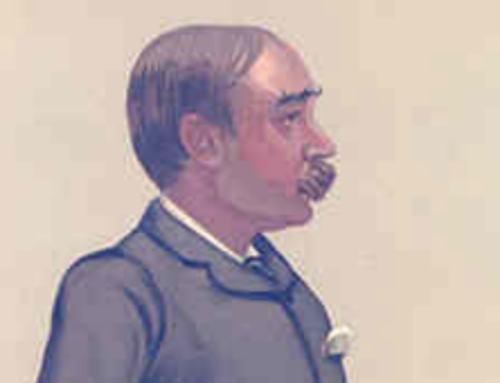
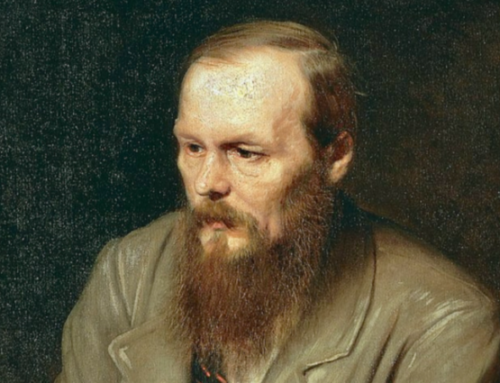
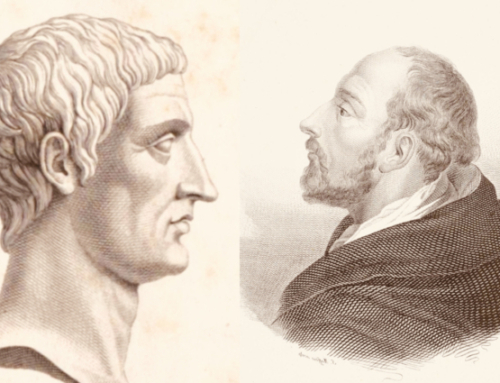
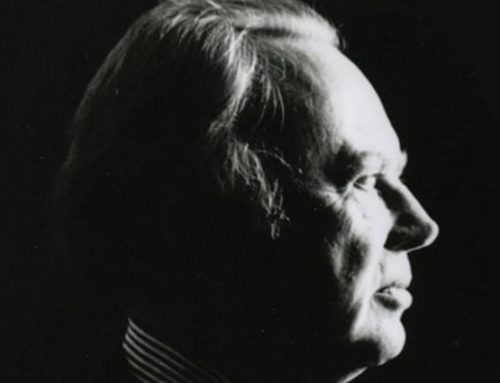
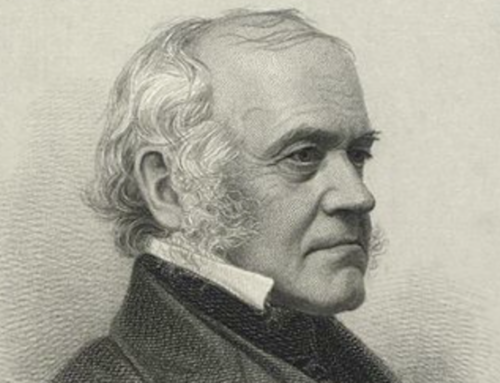
Leave A Comment